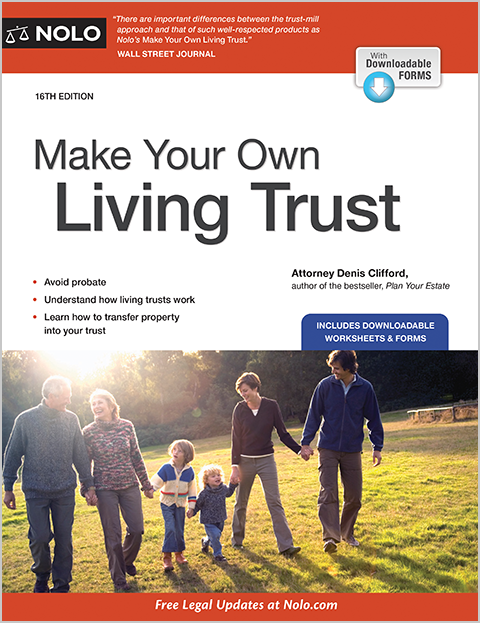Save time and money when you use probate shortcuts to wrap up an estate in Virginia.
The probate process can be long and drawn out, costing your survivors time as well as money. Fortunately, Virginia offers a probate shortcut for "small estates." If the property you leave behind at your death is below a certain amount, Virginia allows your inheritors to skip probate and use a simple affidavit procedure instead to collect the property.
Additionally, Virginia is an unusual state in that it allows real estate to be transferred outside of probate as well. Find out whether your loved ones might be able to use these procedures.
Collecting Property With a Small Estate Affidavit
Virginia offers a procedure that allows inheritors to collect property directly from the person or institution holding it by using a small estate affidavit.
How to Qualify for the Small Estate Affidavit Procedure
To qualify, the estate (the property you own at death) must meet these requirements:
- the value of the entire probate estate (see below) can't exceed $50,000
- at least 60 days have elapsed since the death
- the will, if any, must be filed with the probate court, and
- no application for the appointment of a personal representative is pending or has been granted in any jurisdiction.
(Va. Code § 64.2-601 (2024).)
This process can't be used to collect real estate, but Virginia has another probate shortcut for real estate, discussed later in this article.
How to Use Virginia's Small Estate Affidavit
If your estate meets the requirements listed above, your inheritors can sign a simple document under oath, called a small estate affidavit. (Here's a sample affidavit.) This document makes several statements, including that the estate meets the requirements set out above. It also describes the property being claimed and lists the names and addresses of successors to the property. (Va. Code § 64.2-601 (2024).)
After signing the document (and swearing to its truthfulness) and having it notarized, the inheritors simply present the affidavit to the person or institution holding the property—for example, a bank where the deceased person had an account. The inheritors will usually also need to provide a certified copy of the death certificate. After that, the person or institution releases the asset. (Va. Code § 64.2-601 (2024).)
Transferring Real Estate Without Probate in Virginia
In Virginia, real estate can be transferred automatically to inheritors without going through probate court. This is true regardless of whether the deceased person left behind a will (died "testate") or no will (died "intestate"). (Bruce v. Farrar, 158 S.E. 856, 857 (Va. 1931).)
If There's a Will
Once the will is recorded (filed) in the land records office of the county where the real estate is located, the will essentially acts as a deed. The beneficiaries named in the will to receive the real estate become the new owners. However, if the deceased person had debts, the real estate might need to be sold to pay those debts.
If There's No Will
If the deceased person died intestate, the real estate passes directly to heirs determined by Virginia law; again, no probate is required. A Virginia statute sets out the order of priority of family members. For example, if there is a surviving spouse, the spouse will inherit the real estate. If there is no surviving spouse, the children and their descendants are next in line; if there are no children or descendants, parents are next, followed by siblings, and so on. (Va. Code § 64.2-200 (2024).)
To get official title to the real estate, the heirs complete a Real Estate Affidavit (Form CC-1612) and file it with the local circuit court. This affidavit states:
- the legal description of the real property
- that the deceased person died without a will, and
- the names and addresses of the heirs.
The court then produces an order setting out the heirs, and that order is recorded (filed) in the land records office of the county where the real estate is located. Again, the order acts effectively as a deed. (Va. Code § 64.2-510 (2024).)
Transfer-On-Death Deeds
Virginia also allows transfer-on-death deeds (TODs). An owner of real estate can use a TOD to transfer property to another person when the owner dies. The TOD must be recorded in the land records office of the county where the property is located before the owner dies. (Va. Code § 64.2-628 (2024).)
For More Information
For help determining if an estate qualifies for one of these probate shortcuts, or handling an estate in general, see The Executor's Guide, by Mary Randolph (Nolo) or Estate Planning Basics, by Denis Clifford (Nolo).
For more on Virginia estate planning issues, see our section on Virginia Estate Planning.



